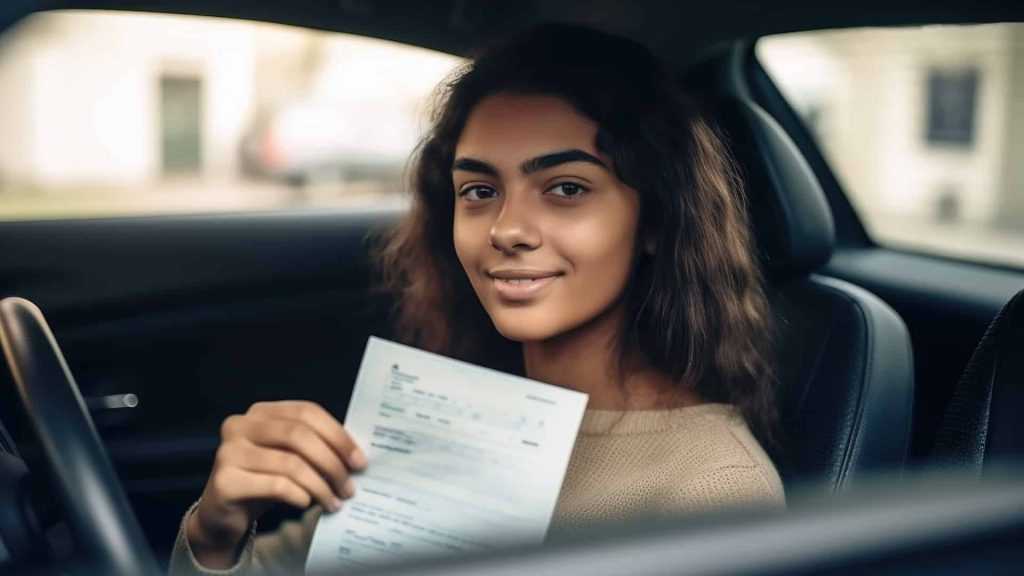
Are you an expat living in Germany? Check out these top 17 questions googled by other expats in Germany.
#1 How crucial is German language proficiency for expats in Germany?
Speaking German can make a huge difference in your daily life in Germany. Sure, in big cities like Berlin and Munich, many people speak English, but for things like dealing with German government paperwork, shopping in local stores, or even making German friends and neighbors, knowing the language makes a huge difference.
How can expats in Germany learn German quickly?
To learn German quickly, expose yourself to the language as much as you can. Try watching German TV shows, listening to German podcasts, reading German newspapers, watching videos that relate to the language, and don’t shy away from practicing with locals. You can also use language apps like Duolingo or Babbel for the basics. You can also enroll in German language learning classes if you prefer assistance.
Check this out: 8 Best German Language Schools in Berlin
#2 What documents are required for expats in Germany to register their address?
To register your address at the local Burgermt or Einwohnermeldeamt (registration office in Germany), you’ll need:
- your passport or ID card
- a completed registration form (Anmeldeformular)
- a rental contract from your landlord (Wohnungsgeberbestatigung)
- a visa or residence permit (in some cases)
Tip: Book an appointment Online to save time.
Also Read: How to get a Registration Certificate in Germany
#3 What visa and residency rules must expats in Germany comply with?
EU citizens can live and work in Germany without a visa but still need to register. Non-EU citizens need a resident permit for longer stays, which usually requires proving you have a job, finances, and health insurance.
Tip: Make sure you check the most current requirements from the German Embassy or similar authorities, as rules are subject to change.
Also Read: How to Secure a Permanent Residence in Germany
#4 How can expats in Germany efficiently use public transportation in major German cities?

Germany is renowned for its extensive and reliable public transportation system. So, grab a map of the local system or simply use an app like DB Navigator to plan routes. Consider getting a monthly pass if you’re using German public transportation too often, as it’s more cost-effective. Be sure to validate your tickets to avoid fines. To know more about German (Berlin) Public Transportation, check out this blog: How to Use Transportation in Berlin
#5 What German work-life balance features might surprise expats in Germany?
Germans take work-life balance pretty seriously. It’s usual to see most offices very quiet after 5 PM—Germans really respect finishing on time. Also, it’s very common for shops to shut by 8 PM and almost every day on Sundays! So don’t be surprised if emails or calls go unanswered after work hours and on weekends. It’s just a part of the German culture to compartmentalize work and personal life.
#6 How can expats in Germany effectively navigate the German healthcare system?
The German healthcare system is robust but can seem complex. First, you’ll need health insurance—either public (GKV) or private (PKV), depending on your employment status and income. Once insured, you get a health card, which you present at doctor’s visits. Finding English-speaking doctors is easier in cities through websites like doctolib.de. For non-emergency issues, you can visit a general practitioner (Hausarzt), who can then refer you to specialists. Unlike in other countries, appointments are crucial in Germany. Walking in is a big no-no unless it’s an emergency.
#7 How should expats in Germany prepare for tax season, including Church Tax?

In Germany, if you’re employed, your income tax is usually deducted directly from your salary. However, you still need to file an annual tax return to potentially receive a tax refund. If you belong to a registered church, you’ll automatically pay Church Tax, which is a percentage of your income tax unless you officially opt out. To know more about filing income tax in Germany, check out this step-by-step guide: How to File Taxes in Germany?
#8 Which local festivals and holidays should expats in Germany not miss?
Definitely make time for some iconic local events. Oktoberfest in Munich is a must-see with its lively beer tents and traditional Bavarian music. If you’re around in winter, visit the beautiful Christmas markets (Weihnachtsmärkte) held in many towns; the ones in Nuremberg and Dresden are particularly magical. Also, don’t miss out on experiencing Karneval or Fasching (Mardi Gras) in cities like Cologne where the streets come alive with parades and costumes.
#9 What should expats in Germany know about setting up bank accounts and managing finances?
Setting up a bank account in Germany is pretty straightforward. You’ll need your passport, proof of address, and sometimes your residence permit. Online banks like N26 and traditional ones like Deutsche Bank are popular choices.
Want to open your first German Bank Account?
Check this step-by-step guide: How to Open Your First German Bank Account
#10 What do Experts in Germany need to do to get a driver’s license?

In the event that you are relocating to Germany from another nation, you may be able to obtain a German driver’s license without having to take an exam. However, this is dependent upon where you are from. Licenses that are not from the EU or EEA typically last six months. After that, a German license will probably be required. For information unique to your situation, you might choose to contact the Fahrerscheinstelle (local driving license office). Should you have to take the test, be ready for both the driving practical test and the theory portion. Even if you are an experienced driver, you may still need to familiarize yourself with German traffic laws by enrolling in a few driving classes at a nearby driving school (Fahrschule).
#11 How can expats in Germany connect with locals and international communities in Germany?
Joining groups or clubs that share your interests is a good place to start. Meetups for expats or language exchange organizations are also excellent choices. You may find local events by using websites such as Meetup. Major German cities have a plethora of excellent expat communities on social networks such as Facebook. To meet people locally and internationally, you can also go to events in the area or sign up for classes at Volkshochschule, or community centers.
#12 What employment rights should expats in Germany be aware of?
Germany is among the nations with robust labor laws that offer protection to laborers. The same employment rights apply to you as an expat as they do to German citizens. This covers the freedom to a reasonable salary, paid time off, paternity leave, and safeguarding against wrongful termination.
Make sure that the employment contract you have fits German requirements. Additionally, the standard weekly cap on working hours is 48, unless otherwise agreed upon.
#13 What emergency protocols and safety tips should expats in Germany know?

112 is the universal emergency number in Germany. It signals medical and fire department situations. And 110 is for Police. You can call these toll-free numbers from any phone. It’s also a good idea to know some basic emergency phrases in German, such as “help” or “assistance.” In general, Germany is a fairly safe and secure country, but like with any place, you should exercise caution in less frequented or unknown regions. Stay alert and protected at all times, especially in large cities where pickpocketing is a possibility. You can report any suspicious activity by calling 110 at any time.
#14 How can expats in Germany access and understand social security benefits?
The German social security system, which covers insurance, pension plans, unemployment benefits, and accident insurance, should be automatically enrolled in you by your employer if you work there. To truly understand and utilize your benefits, check out this blog: Everything You Must Know about Social Security in Germany
#15 What cultural etiquette tips are essential for expats in Germany to know?
To those who are unfamiliar with it, Germans tend to favor communication that is straightforward and unambiguous. Being on time for meetings and social events is always a goal because, in Germany, it’s frequently regarded as a show of respect. Keep your hands on the table instead of in your lap when you eat. It is customary to offer a small present, such as chocolates or flowers when you visit someone’s house in Germany. And please, no small talk.
#16 Where can expats in Germany find legal assistance for immigration and residency issues?
It’s best to speak with an immigration lawyer for legal guidance, particularly with regard to immigration and residency regulations, as they may offer specialized counsel and representation. Furthermore, a lot of towns have international clubs or local expat centers that may help with the procedures and offer advice. The centers frequently hold really helpful workshops or lectures.
#17 Can Expats Homeschool in Germany?

Homeschooling in Germany is actually pretty tight. The law generally requires kids to attend a public or recognized private school, and homeschooling isn’t officially allowed. There are some rare exceptions, usually tied to unique circumstances like health issues, but these are pretty uncommon. If you’re set on homeschooling, you’ll need a solid reason and possibly have to go through some legal hoops to get an exemption. It’s definitely a challenging route to take in Germany.
Other Frequently Searched Questions
Can expats buy property in Germany?
Yes, expats can totally buy property in Germany just like the other German citizens.
can expats or foreigners vote in Germany?
Expats from outside the EU can’t vote in national elections, but if you’re an EU citizen living in Germany, you can vote in European and local elections.
can expats or foreigners work in Germany?
Absolutely, expats can work in Germany, but depending on where you’re from, you’ll usually need a work permit alongside your residence visa.
can expats or foreigners marry in Germany?
Expats can get married in Germany, no problem. The process is pretty straightforward but involves some paperwork, like showing your birth certificate and proving you’re single.
can expats or foreigners study in Germany for free?
Public universities in Germany don’t charge tuition fees for undergrad programs, even for foreigners. However, you’ll still need to cover your living costs and a small administrative fee each semester.
can expats or foreigners drive in Germany?
You can drive with your home country’s license for a few months, but after that, you’ll need to get a German license, depending on where your original license is from.




